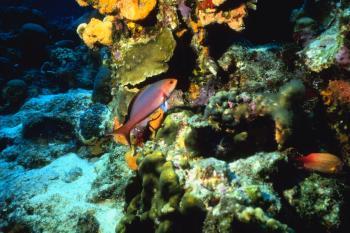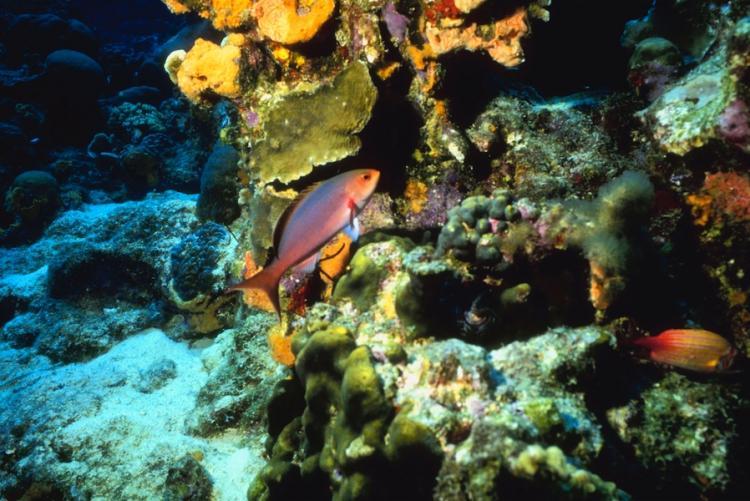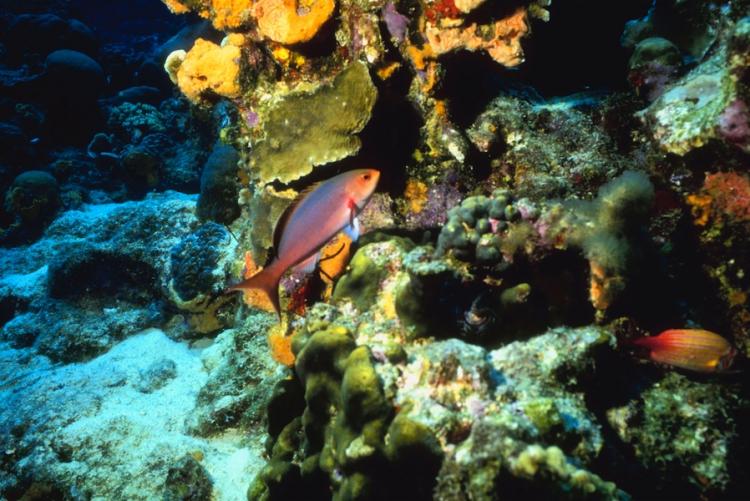Quality of life is not good right now for the Atlantic bluefin tuna. The bluefin, whose populations were already at 15 percent of their historical numbers, faced an oil-laden spawning ground when they migrated to the Gulf of Mexico this spring. “This couldn’t have happened at a worse time,” said Gerald Leap, director of the Global Tuna Campaign for the Pew Environmental Group. “Not that there is ever a good time for an oil spill,” he noted wryly.
The bluefin lays its eggs between April and June according to Leap and the full impact of the BP spill is not known yet and it may be up to two years before scientists can measure how the tuna have been affected. Scientists must wait to see how many tuna migrate along their normal routes.
Even if the adult bluefin were able to successfully spawn this year, the young fish may have to contend with oil settlement in the water around them.
Another blow to the bluefin came in March when a proposed ban on international tuna trade did not pass the Convention on International Trade in Endangered Species of Wild Fauna and Flora. International trade is the “driver that has pushed this species [the bluefin] to near extinction,” Leap said.
However, the bluefin have another hope of reprieve this year when the International Commission for the Conservation of Atlantic Tunas (ICCAT), the group responsible for managing tuna populations in the Atlantic, meets in Paris in November. ICCAT will decide the fishing quotas for the bluefin and Leap says Pew Environmental will advocate for a moratorium on bluefin catch and hopes at least for significantly reduced quotas for the beleaguered fish.
Moratorium Success
Red snapper in the South Atlantic, another chronically overfished species, has gotten the reprieve the bluefin hopes for.
The South Atlantic Fishery Management Council, on June 9 approved a total moratorium on red snapper catch from North Carolina to the Florida Keys.
“This is probably one of the more significant actions that any fishing management council has undertaken to end overfishing and restore a species,” said Holly Binns, manager of the Pew Environmental Group’s Campaign to End Overfishing in the Southeast.
Binns said the moratorium needs to reduce the red snapper mortality rate by 76-83 percent.
The red snapper have been over fished for the past 40 years, meaning more fish are killed than can be reproduced. In addition, the snapper, which can live over 50 years, cannot reproduce until it is 10-12 years old. An assessment of red snapper ear bones from fish caught in Florida and Georgia found that the majority of snappers caught, (80 percent in Fla., 88 percent in Ga.) were only five years old.
Fisherman reactions to the moratorium have been mixed, some contend that with the snapper population data used by the council is not accurate.
The moratorium is in place indefinitely, until scientists determine that population can again sustain fishing.
Binns said it’s too early to know how the red snapper has been affected by the oil spill. Of significant concern is that it and other marine life will ingest droplets of oil broken apart by dispersants.
The bluefin lays its eggs between April and June according to Leap and the full impact of the BP spill is not known yet and it may be up to two years before scientists can measure how the tuna have been affected. Scientists must wait to see how many tuna migrate along their normal routes.
Even if the adult bluefin were able to successfully spawn this year, the young fish may have to contend with oil settlement in the water around them.
Another blow to the bluefin came in March when a proposed ban on international tuna trade did not pass the Convention on International Trade in Endangered Species of Wild Fauna and Flora. International trade is the “driver that has pushed this species [the bluefin] to near extinction,” Leap said.
However, the bluefin have another hope of reprieve this year when the International Commission for the Conservation of Atlantic Tunas (ICCAT), the group responsible for managing tuna populations in the Atlantic, meets in Paris in November. ICCAT will decide the fishing quotas for the bluefin and Leap says Pew Environmental will advocate for a moratorium on bluefin catch and hopes at least for significantly reduced quotas for the beleaguered fish.
Moratorium Success
Red snapper in the South Atlantic, another chronically overfished species, has gotten the reprieve the bluefin hopes for.
The South Atlantic Fishery Management Council, on June 9 approved a total moratorium on red snapper catch from North Carolina to the Florida Keys.
“This is probably one of the more significant actions that any fishing management council has undertaken to end overfishing and restore a species,” said Holly Binns, manager of the Pew Environmental Group’s Campaign to End Overfishing in the Southeast.
Binns said the moratorium needs to reduce the red snapper mortality rate by 76-83 percent.
The red snapper have been over fished for the past 40 years, meaning more fish are killed than can be reproduced. In addition, the snapper, which can live over 50 years, cannot reproduce until it is 10-12 years old. An assessment of red snapper ear bones from fish caught in Florida and Georgia found that the majority of snappers caught, (80 percent in Fla., 88 percent in Ga.) were only five years old.
Fisherman reactions to the moratorium have been mixed, some contend that with the snapper population data used by the council is not accurate.
The moratorium is in place indefinitely, until scientists determine that population can again sustain fishing.
Binns said it’s too early to know how the red snapper has been affected by the oil spill. Of significant concern is that it and other marine life will ingest droplets of oil broken apart by dispersants.


